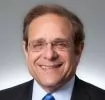A recent decision by the NLRB provides insight and guidance to employers who are struggling to deal with the ever-expanding issues arising from employees' use of social media. The Karl Knauz Motors case involved a BMW dealer that held an event called the BMW Ultimate Driving Experience, in an attempt to stimulate car sales. One of the dealership's sales representatives was unhappy that his bosses were only serving hot dogs and chips at the event. Apparently, this sales representative believed that the target audience of potential BMW customers deserved better. In protest, the sales representative posted critical comments about the event on his Facebook page. Not satisfied to stop there, the employee sales representative also posted pictures about an unfortunate incident at an adjacent Land Rover dealership, also owned by Karl Knauz Motors. Apparently, a Land Rover wound up submerged in a pond when a potential customer's child was allowed to get behind the wheel. In protest, the BMW sales representative posted pictures mocking the Land Rover dealership. For all of his postings, the BMW sales representative was terminated.
Even though there was no union at the BMW dealership, the terminated employee filed a charge with the NLRB alleging that his Facebook postings were in fact "protected concerted activity" because his protests were over terms and conditions of employment.
It is important for readers to understand that private sector employers who fall under the NLRB's jurisdiction cannot restrict or retaliate against employees who engage in "protected concerted activity" regardless of if a union is in place. For example, employers who tell employees they can never discuss their salaries with other employees probably violate the employees' rights under the NLRB.
In the Karl Knauz Motors case, the NLRB ruled that the BMW sales representative was lawfully terminated because the postings about the Land Rover incident were unprotected. It is important to note that while the board upheld the discharge, it also ruled that protestations over serving hot dogs and chips at the Ultimate Driving Event were protected. There, the efforts taken or not taken by the employer affected the earnings of all sales representatives. The board also held that the employer's social media policy was thus overly broad.
The facts behind this case and all the legal implications raised are but one example of the complexity employers face when employees use social media in the workplace or to discuss workplace events.
This topic will be one of a number of cutting-edge issues discussed at Foley's Labor and Employment Law Summit to be held in Chicago on October 25, 2012. Joining us to discuss the issue of the NLRB and social media will be Elizabeth Galliano, a field examiner with the Chicago office of the NLRB. Elizabeth investigated the Karl Knauz Motors case and many others, and will provide practical insights as to board law. Details for enrolling in the seminar are located on our events page on Foley.com.
The content of this article is intended to provide a general guide to the subject matter. Specialist advice should be sought about your specific circumstances.

